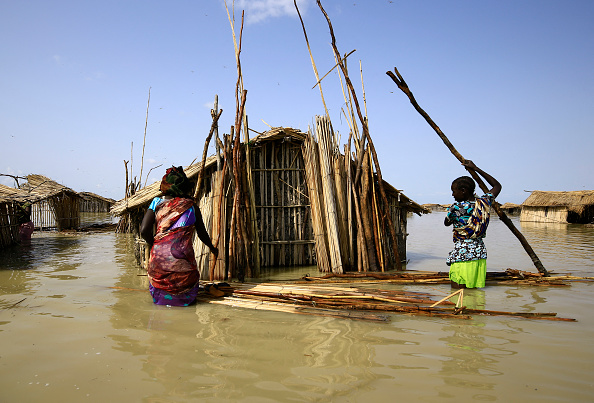Juba – Flooding from six months of torrential rain in South Sudan has affected 760 000 people, the UN’s emergency-response agency said on Wednesday, as it appealed for funds.
Eight out of South Sudan’s 10 states have now been hit by flooding, affecting access to healthcare and other services, the Office for the Coordination of Humanitarian Affairs (OCHA) said in a briefing note.
Aid efforts have been disrupted by fighting between rival ethnic groups in the south of the country, and people have sought refuge in neighbouring Uganda.
Rebecca Adut, a 48-year-old mother of six who fled to Jonglei state capital Bor, said the rainfall submerged their crops and life at the displacement camps was tough.
“We are struggling to feed ourselves. Mosquitoes are biting us and we don’t know when we will return to our place,” she said, desperately begging for help.
ALSO READ |
In Bentiu, the capital of Unity state, farmer Gatluak Samuel, 37, said they had to abandon all their belongings as the water level rose “little by little until it filled all our area, houses and property”.
“There is no place to sleep, cooking is a challenge and life is generally hard,” he said.
“Currently I can go and do some fishing and once I get some fish it is what the children eat,” the father-of-four added.
The United Nations refugee agency UNHCR last month described the floods as the worst seen in some areas since 1962, blaming the downpours on climate change.
Three consecutive years of floods have eroded people’s ability to cope with the devastation, it warned.
Funding shortfall
OCHA in September said it had only received 54% of the $1.7 billion it needs to help victims.
“Additional funding, logistic support to transport supplies and support to repair dykes to prevent further flooding, are urgently needed,” it said Wednesday.
Funding shortages have also forced the UN World Food Programme to suspend food aid to more than 100 000 displaced people.
ALSO READ |
Four out of five of South Sudan’s 11 million people live in “absolute poverty,” according to World Bank figures for 2018, and nearly two-thirds of its population suffer from severe hunger.
Since achieving independence from Sudan in 2011, the young nation has been in the throes of a chronic economic and political crisis, and is struggling to recover from the aftermath of a five-year civil war that left nearly 400 000 people dead.
Although a 2018 ceasefire and power-sharing deal between President Salva Kiir and his deputy Riek Machar still largely holds, little progress has been made in fulfilling its terms.
Follow African Insider on Facebook, Twitter and Instagram
Picture: Getty Images
Source: AFP
For more African news, visit Africaninsider.com


